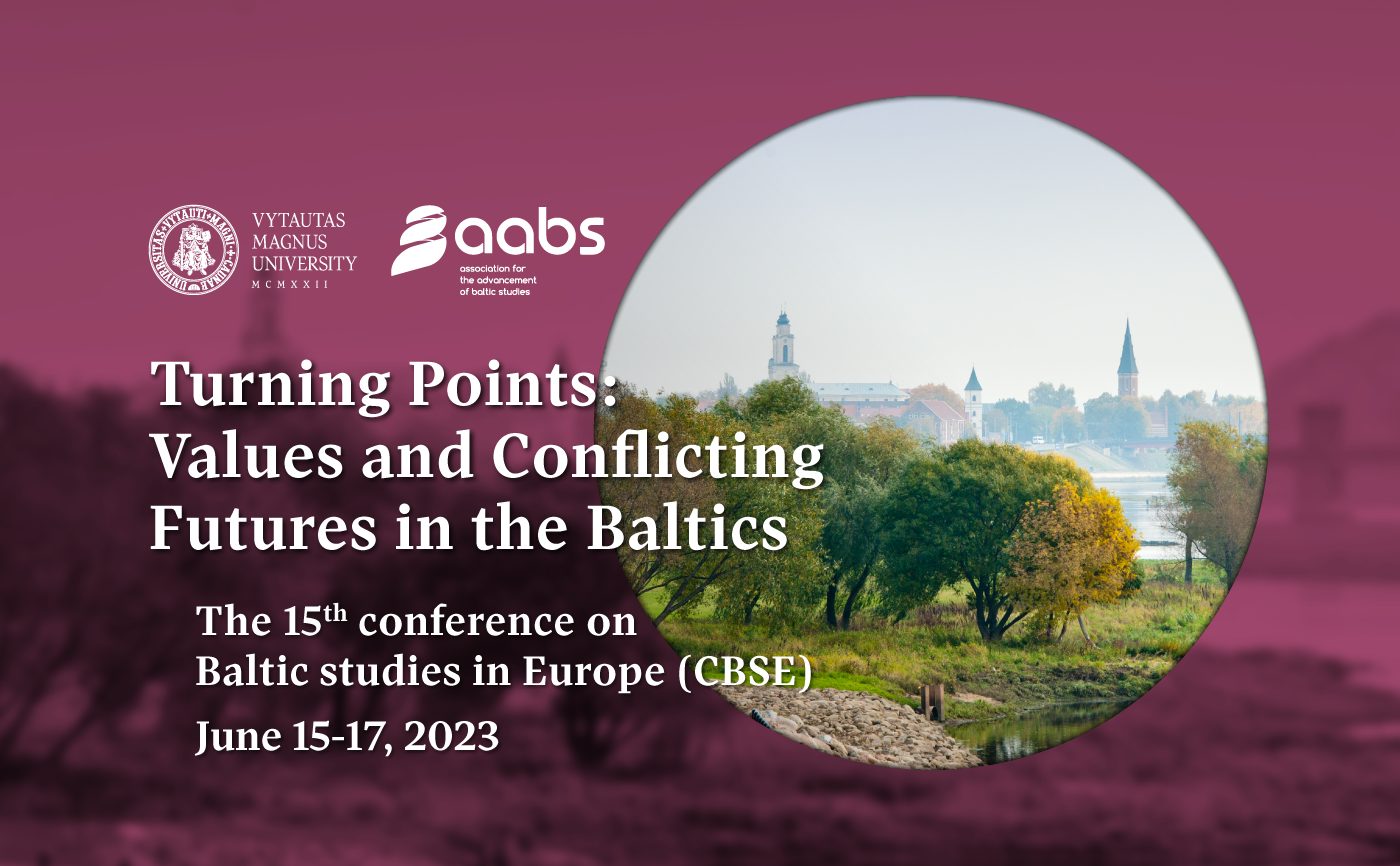Hundreds of Scientists to Discuss Baltic Affairs at Conference

As the war continues in Ukraine, what role has been played by the Baltic region countries, which have experienced “vicarious identification” with Ukrainians and their pain? How can we help museums quickly respond to emergency situations, when artwork is being destroyed? In today’s Europe, what role is played by the Baltic region, which is located on the continent’s edge and constantly experiences turmoil? These and other questions will be discussed by scientists from all over Europe in the international conference Turning Points: Values and Conflicting Futures in the Baltics, which will be held on 15–17 June at Vytautas Magnus University (VMU) in Kaunas.
The biennial Conference on Baltic Studies in Europe (CBSE) brings together hundreds of scholars from all disciplines and stages in their careers worldwide who share an interest in exploring the Baltic region from multiple perspectives and fields of research. According to the organisers, the Baltic region faces increasingly uncertain conditions on the one hand and emerging opportunities on the other. In addition, the region has had an increasing role in Europe, especially when speaking out on moral issues and in the context of war in Ukraine.
“The three-day rich and intensive program will feature over 100 panels, roundtable discussions, and book presentations on many broad topics. The presenters will highlight the important achievements in Baltic studies and address the urgent issues significant today. Many presentations will focus on the war in Ukraine, as this theme receives most of the attention in different disciplines of scholarship. The conference will also encompass numerous additional events, including cultural ones. Kaunas has retained the cultural aura after 2022, when the city had the honor of acting as the European Capital of Culture. I believe that everyone who comes here will be able to find enjoyable academic and cultural activities”, the conference’s organiser, VMU professor and institutional coordinator of the Transform4Europe Alliance Ineta Dabašinskienė said.

At the event, presentations and discussions will be held by hundreds of researchers and experts from various countries of Europe and the world: the USA, United Kingdom, Germany, Austria, Italy, Sweden, Finland, Croatia, Poland, Latvia, Estonia, Lithuania and many other. One of the keynote presentations will be by the Director General of the Lithuanian National Museum of Art, former Minister of Culture of Lithuania Arūnas Gelūnas.
According to Gelūnas, since the beginning of Russian invasion in Ukraine on February the 24th, 2022 it has become obvious that the war for territory and the human lives also involves the struggle for cultural and historical memory: the enemy attempts to paint Ukraine as just an uncivilized province of Russia. Churches were destroyed, museums were invaded and looted, important Ukrainian collections were vandalized or stolen and transported to Russia, e.g. 15,000 museum pieces from the Kherson Art Museum.

“What new roles the memory institutions can adopt in times of the armed conflict and such a war “for the right to be civilized”? Can the museums that usually plan their activities long in advance generate urgent responses to such emergency situations? The presentation attempts at showcasing the concrete examples of war-time cooperation between Ukrainian and Lithuanian museums and the completely new strategies that museums can adopt as the places for rescue, shelter and counter-propaganda”, Arūnas Gelūnas explained while presenting the topic of his presentation.
The other keynote will be dedicated to the topic of country identity and will be held by Professor Dovilė Budrytė from Georgia Gwinett College (USA).

“In 2022 the Baltic states have experienced “vicarious identification” (“living through the other”)—the emergence of a shared identity with Ukraine and waging war with Russia at home. By identifying vicariously with Ukraine, the Baltic states have been able to assert their agency and become heard in the transatlantic community, and this is why it has been a “decolonizing moment of sorts” (as articulated by Maria Mälksoo) for these states. However, the processes of vicarious identification have not been absolute, and they have exposed new lines of division—both domestically and internationally”, Budrytė observed.












